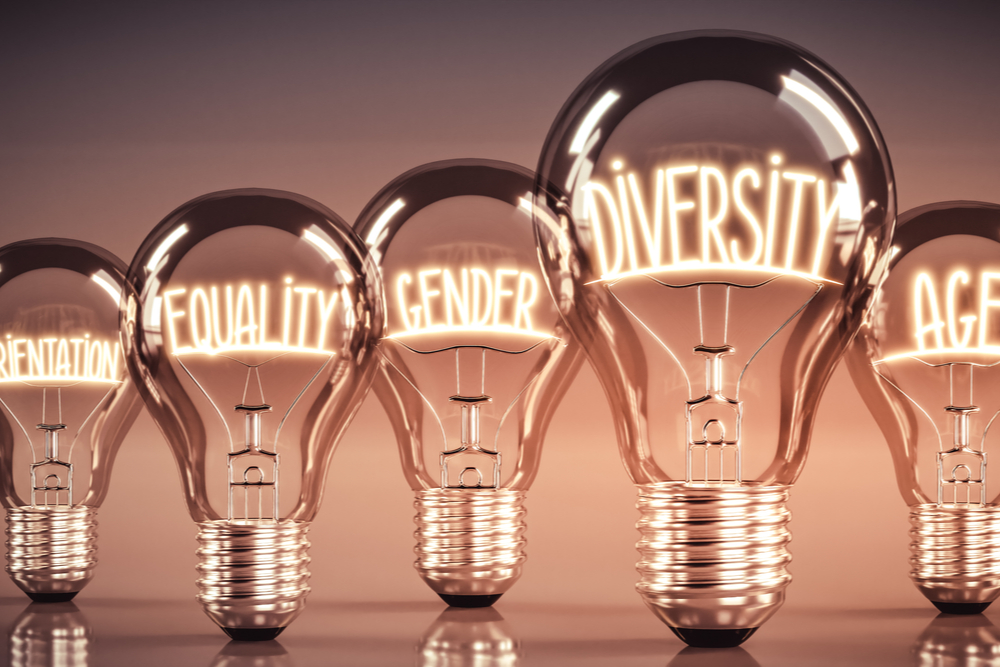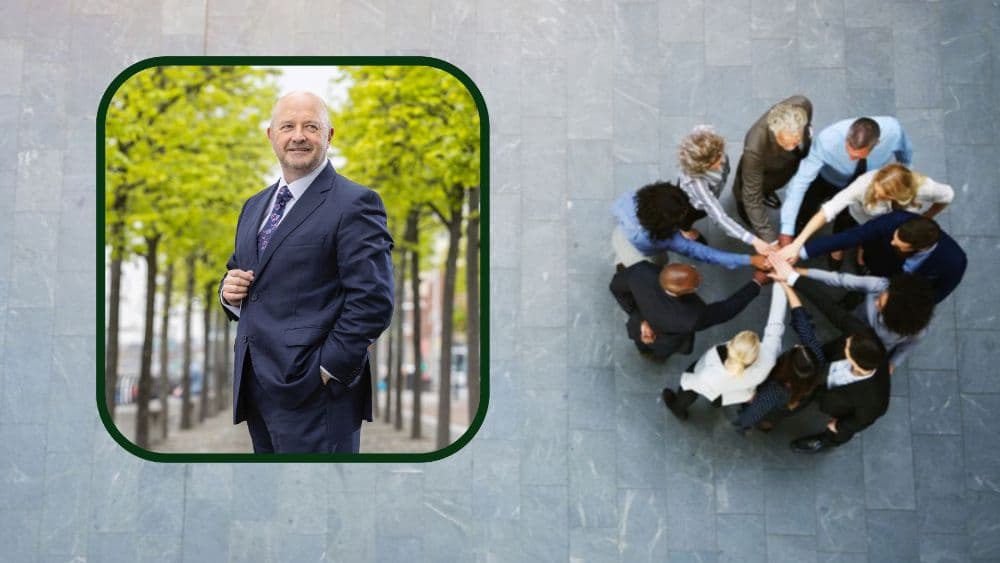Podcast Ep 261: Despite external pressures, companies in Ireland remain committed to workplace diversity, equity and inclusion (DE&I). Deloitte and Business in the Community Ireland talk about why Irish business leaders that stick with DE&I will find themselves on the right side of history.
The ThinkBusiness Podcast spoke with Richa Tyagi, senior sustainability adviser at Business in the Community in Ireland, and Adrienne Daly, head of Social Impact at Deloitte about the latest Elevate Pledge Report and how Irish firms are holding firm on diversity, equity and inclusion (DE&I).
The report, which analyses data from over 60 large companies with a combined workforce exceeding 160,000 employees, shows that organisations are prioritising certain aspects of DE&I over others.
“In terms of attracting and retaining talent, Ireland is a multicultural place now, and people expect their place of work to reflect the society that they’re living in”
As a result, significant gaps remain in certain diversity areas.
The report highlighted several notable trends in workplace diversity efforts. While increasing female representation at senior levels emerged as the most common key performance indicator (KPI) among signatories, other areas show significant gaps between measurement and action.
For instance, 53% of signatory companies track disability statistics, but only 8% have established disability-related KPIs. Currently, 7% of the Elevate workforce have identified as having a disability, and 6% have disclosed being neurodiverse.
The report also found that 64% of signatories partnered with employment support organisations to widen their recruitment channels, resulting in over 160 new hires. However, while 16% of the signatories’ workforce are from ethnic minority groups, there is an overrepresentation at entry-level positions, suggesting underemployment relative to these individuals’ skills, qualifications, and experience.
Be the change you want to see in the world
“It is not very easy to be a DEI practitioner right now in the current environment, because we are going back to establishing a business case for everything which was well established already”
“Elevate is Business in the Community Ireland’s inclusive workplace Pledge for businesses,” Tyagi explained. “The Pledge was built with the ultimate ambition that we support businesses in building inclusive workplaces that are reflective of the Irish society. The Pledge is built on the principles of leadership and accountability. The Pledge is signed by the CEO of the company to make sure that inclusion stays on the leadership agenda. We say where the leader shines their light is where the work gets done. The accountability piece is very important in terms of asking companies to not just say that they are an inclusive employer, but to actually tangibly showcase what you’re doing, how you’re doing.”
Tyagi said the data gathering exercise was insightful. “We encourage businesses to gather data on personal indicators, including the protected characteristics. So not just gender, but characteristics like age, like ability, like neurodiversity, sexual orientation, socioeconomic status. This is only a voluntary disclosure piece that companies are taking up. Every year we get a combination of organisational indicators and personal indicators in an anonymised format. This year’s report is based on a collective workforce of 160,000 employees, and that’s a huge number for us.”
The data provides a snapshot in time of where Ireland’s business world is in terms of representation.
“What we are seeing is that there is a good bit of representation that we have on gender, for example, at all of the organisational levels. Collectively, Elevate has about 43% female representation, which is more than any other business surveys that we’ve come across. But on other indicators, there’s a lot of work that needs to be done. For example, ability representation – there’s 7% of employees with disability in the workforce.”
While this indicates more work to be done, it is hard not to be cognisant of the harmful political atmosphere emanating from the United States. In particular, the White House’s cracker box policies around DE&I and the worrying fact that many large businesses in America are towing the political line despite previously being champions of DE&I.
I asked Adrienne Daly how businesses responding to external pressures around DEI, particularly given the political climate in other parts of the world?
“In the context of Deloitte Ireland, we’re still very committed to maintaining that vibrant and diverse workforce that our people have come to know and expect now. In terms of attracting and retaining talent, Ireland is a multicultural place now, and people expect their place of work to reflect the society that they’re living in. Especially with our younger generations, we do a Gen Z and Millennial survey every year, and this is kind of a base level expectation. DE&I is nothing groundbreaking to the next generation of workforce. It’s just their basic level of expectation.”
The reality is, however, that many large businesses operating in Ireland are subsidiaries of US-headquartered multinationals. In a lot of cases, some of these US businesses were quick to reverse their DE&I policies.
Holding firm
“It is not very easy to be a DEI practitioner right now in the current environment, because we are going back to establishing a business case for everything which was well established already,” Tyagi points out.
“DE&I is nothing groundbreaking to the next generation of workforce. It’s just their basic level of expectation”
“But what we are seeing is that despite a very visible backlash in certain parts of the world, it continues to hold firm as a business imperative. All the leaders that we have spoken to as part of that signatory cohort, all the practitioners that we have spoken to, it is very clear that they have the opportunity, but also the responsibility to lead with intention and accountability on this.”
Daly agrees and says businesses like Deloitte are continuing to innovate in DE&I policy.
“We have a return to work programme now that is open to male and female, and that’s around bringing people back into the workforce after a long absence, minimum 18 months, but up to 10 years plus. We also have our Aspire program that is a big focus for us now around how do we attract people with great skills and depths of talent and experience, but that have come to Ireland, maybe under sometimes very traumatic experiences. We’re trying to access that group through our Aspire program, and bringing them into the experience of professional services in the Irish context.”
If anything, Tyagi says, businesses that are holding firm on DE&I are pushing forwards. “Over the four years of the Elevate report, every year as part of the conversations that we are having, we are definitely hearing that the role of DE&I is changing substantially, and the value of that is very visible in the boardroom as well. Businesses have definitely taken a very strategic approach to DE&I in integrating it into all the business decisions. There’s a lot of awareness education coming in from a very strategic level.”
She pointed to one business that is deploying its own internal voluntary disclosure campaign. “One of the champions asked, ‘Why are you asking for my sexual orientation? What does it have to do with you?’ When we spoke to him, we told him that we want to understand the representation of the LGBT community within the organisation. When you’re coming in through those doors, are you able to be your 100%? Are you able to be yourself? If you have to hide certain parts of your identity at your workplace, the emotional tax that it brings is so high, and we are just trying to reduce that one barrier. That went and sat so beautifully with him that he championed, and he went and spoke to everybody within the organisation.”
The earlier point that GenZ and incoming Gen Alpha employees expect progressive DE&I policies among future employers is also worth noting and is not lost on large Irish employers.
“They have grown up in a very different Ireland, and they have a lot more international opportunities, as well as more international representation at home,” Daly explains. “When they come into the workforce, they really expect to see where they can feel meaning and purpose within their workplace, and alignment to values. We have great engagement with our inclusion networks – our Pride network, our neurodiversity network, our multicultural parents and caregivers, the new menopause network. The engagement with them is really fantastic.”
Businesses themselves are being pragmatic about DE&I. “DEI is not left to chance anymore. There are targets. There are KPIs being set. If it needs to be on the agenda, it needs to show the numbers. DEI KPIs are being set at the leadership level, which is a positive progression for us. There are a lot of family-friendly policies that are being launched. The space to work hybrid is a big one. Over and above leaves around paternity, around adoption, around fertility, around surrogacy, around bereavement, around life circumstances. There is this concept of universal inclusion where it’s not that you have to be a certain type of a parent to avail this leave.”
Tyagi says the changes have been palpable in her working life. “When I started working, nobody was talking about period problems in the office, or menopause, where we are trying to build in education around it, that menopause is something that can be talked about out in the open. There is definitely a shift in how businesses are thinking about their people. And it’s not just resources that are there to do the job, but it’s a part of their own identity and who they are.”
For its part, Daly said Deloitte is pressing ahead with new ways of working that safeguard DE&I principles.
“We introduced an inclusion passport, which lives on the Workday system, and it’s a way that when people join the firm, it’s optional, but you can complete any kind of accommodations that you need, whether from a mental health perspective, a physical perspective, if you’ve got commitments, family commitments, and it travels with you through your career at Deloitte. You don’t have to keep restating yourself every time you join a new project team or a new engagement.”
-
Bank of Ireland is welcoming new customers every day – funding investments, working capital and expansions across multiple sectors. To learn more, click here
-
For support in challenging times, click here
-
Listen to the ThinkBusiness Podcast for business insights and inspiration. All episodes are here. You can also listen to the Podcast on:
-
Spotify
-
SoundCloud
-
Apple






